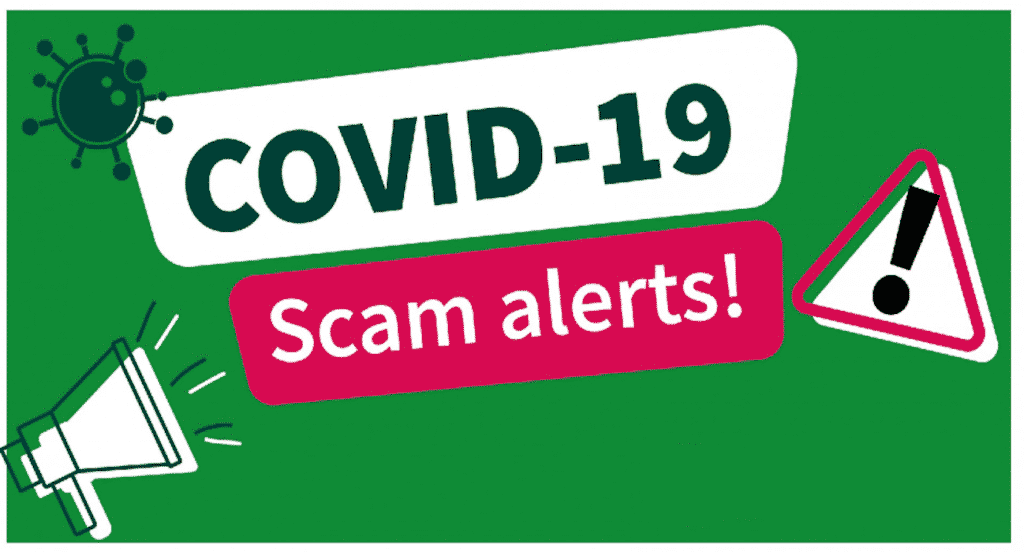Global crises don’t always stop criminals in their tracks – in fact, they can create a whole host of new opportunities to part you with your cash. The COVID-19 crisis may have sent shockwaves across the world, but many criminals have used the situation to their advantage. By reading up on the latest online and offline scams, you can reduce the chances of falling prey to criminals. This is particularly important now as we can see ‘light at the end of the tunnel’ with a vaccine, it’s understandable that one might breathe a sigh of relief and be tempted to drop their guard, but stay vigilant and keep reading!
Impersonation scams
Criminals have been impersonating big-name brands for many years, and this trend hasn’t slowed down during the pandemic. Some criminals have even posed as PPE retailers online, taking cash for goods that are never sent out to buyers. Around one-in-three UK citizens have been targeted by a Covid-19 scammer in 2020, and this has been mirrored in many global locations. Around one-in-four South Africans had been targeted by Covid scammers by May 2020. The online loan company Wonga responded to this by outlining various major scam ‘types’ that had been identified during the pandemic. The company has helped raise public awareness of many of the scams detailed below.
How criminals benefit from Covid-19
Many people are desperately seeking out ‘get rich quick’ opportunities as a result of the economic shockwaves sent around the globe. As various Governments have been offering loans and grants to keep businesses and individuals afloat, criminals have been posing as authorities online to source sensitive information and ultimately cash. Several mainstream banks and money lenders have been impersonated by criminals around the world. The use of streaming services is also on the rise recently as people spend more time at home. Some criminals have been posing as these companies, aiming to dupe people into entering their sensitive data on bogus websites that closely resemble the real thing.
Relief and emergency fund scams
Bogus relief funds are also being offered by scammers aiming to con unsuspecting individuals into providing their details. Some criminals have been accessing relief funds illegally and laundering them.
It’s become increasingly common for criminals to pose as energy, banking and finance companies offering discounts and payment holidays. Again, this is normally a trick designed to entice you into visiting dangerous websites. Many scammers will tell you that your banking security has been compromised and that you need to complete a form or click on a link to keep your money safe. If you are taken in by this correspondence, your bank account could in fact be emptied.
Social media scamming
Criminals are also using social media to their advantage, attempting to befriend people in order to source sensitive information. Loneliness has been a big problem for millions of people during the pandemic, which arguably makes it more likely that they will accept friend requests from strangers. This is why it’s so important to take care when accepting requests. Making bogus phone calls may seem an old-fashioned way to part you with your cash, but this is still more common than you might think. Many criminals have been impersonating key authorities, imposing fake fines on people they claim have broken lockdown rules.
Should I confront a scammer?
If you think someone is attempting to scam you online or offline, shut the conversation down right away and contact the police. There is little to be gained from accusing a scammer of illegal activities. By keeping up to date on the latest tricks used by scammers, you can avoid being affected by their strategies. Never be complacent about your chances of being scammed. Many people who previously thought they would never be taken in by criminals have been parted with their funds. Criminals can be much more sophisticated than you might think and may come across as incredibly genuine. It’s also wise to discuss the latest scams with friends and family members to keep them and their money safe too.

